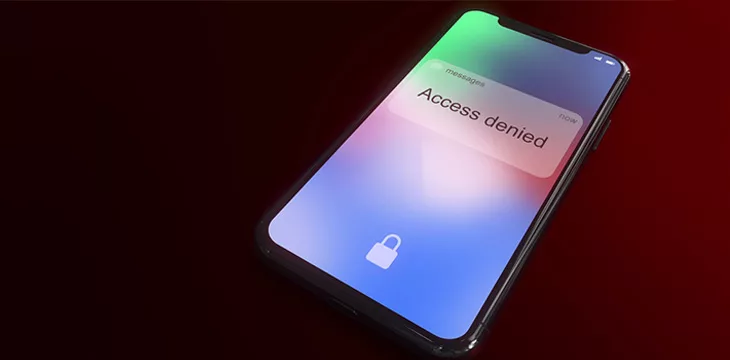|
Getting your Trinity Audio player ready...
|
A United States district judge approved strict cellphone monitoring for Sam Bankman-Fried’s parents while he’s under house arrest at their California home, including installing surveillance software and a consultant reviewing keystroke logs and screenshots of the phones at least three times per week.
Sam Bankman-Fried‘s parents, Joseph Bankman and Barbara Fried, will have their cellphones strictly monitored while the disgraced former CEO of FTX is under house arrest in their California home facing a raft of criminal charges, ordered Judge Lewis Kaplan of U.S. District Court Southern District of New York on Monday.
The court order was requested by Bankman-Fried’s lawyers on April 21 after reaching an agreement on its terms with the government, as a way to comply with bail conditions and prevent him from being detained in prison prior to his trial. There had been concern that his ability to use his parent’s cellphones could be a loophole to the internet use and chat restrictions imposed on him.
“We believe these restrictions are sufficient to prevent Mr. Bankman-Fried from using the Parents’ Phones to circumvent his bail conditions,” Bankman-Fried’s lawyers wrote in their letter to the judge last Friday.
Bail conditions
Under his initial bail conditions, set on December 22, 2022, Bankman-Fried was placed under “strict supervision,” which included monitoring of his location.
After the former FTX CEO was found to have contacted potential witnesses, the prosecution requested at the end of January that he be banned from communicating with any current or former employees of FTX or Alameda, except in the presence of counsel, and also prohibited from using encrypted messaging apps, to which Judge Kaplan agreed on February 1.
However, the Department of Justice (DOJ) later raised concerns about Bankman-Fried’s ability to access the internet without monitoring, particularly in relation to his parent’s devices. On March 28, an agreement was reached to modify the bail conditions again.
The new bail conditions stated that Bankman-Fried was only permitted to use two electronic devices, a laptop and a phone, and was prohibited from using any other cellphones, tablets, computers, or video games that allow for a chat or voice communication or any other “smart” devices with Internet access. The bail conditions also only allowed access to certain pre-approved websites, which are necessary for the preparation of his defense, and his two devices were loaded with monitoring software that log his activity.
Along with these measures, Bankman-Fried’s parents agreed not to let him use their devices and signed affidavits agreeing not to bring prohibited electronic devices into their home.
To ensure these conditions were being followed, Judge Kaplan specified at the time that the monitoring software installed on the parents’ phones “will photograph the device’s user every five minutes,” to ensure he does not use those devices. But defense lawyers later learned that the monitoring software does not have this capability, and so proposed an alternative on April 21:
“Monitoring software is equipped with a keystroke logging function that preserves a record of all user activity on the phone, as well as other capabilities that will guard against Mr. Bankman-Fried using the Parents’ Phones to violate his bail conditions.”
The defense counsel promised to implement these features on the parents’ phones, which Judge Kaplan agreed to on Monday. A “technical consultant” will review the keystroke logs and screenshots of Joseph Bankman and Barbara Fried’s cell phones at least three times per week under the new court order.
The charges
Sam Bankman-Fried is awaiting trial on criminal charges from three different U.S. government agencies for his role in the collapse of the FTX digital asset exchange.
In January Bankman-Fried appeared in a Manhattan courthouse to enter a ‘not guilty’ plea to the eight federal charges filed against him, which were: conspiracy to commit wire fraud on customers and lenders, wire fraud on lenders, conspiracy to commit commodities fraud, conspiracy to commit securities fraud, conspiracy to commit money laundering, and conspiracy to defraud the U.S. and commit campaign finance violations.
If convicted on all counts, Bankman-Fried could be sentenced to up to 115 years in prison.
Follow CoinGeek’s Crypto Crime Cartel series, which delves into the stream of groups—from BitMEX to Binance, Bitcoin.com, Blockstream, ShapeShift, Coinbase, Ripple,
Ethereum, FTX and Tether—who have co-opted the digital asset revolution and turned the industry into a minefield for naïve (and even experienced) players in the market.

 07-01-2025
07-01-2025 





